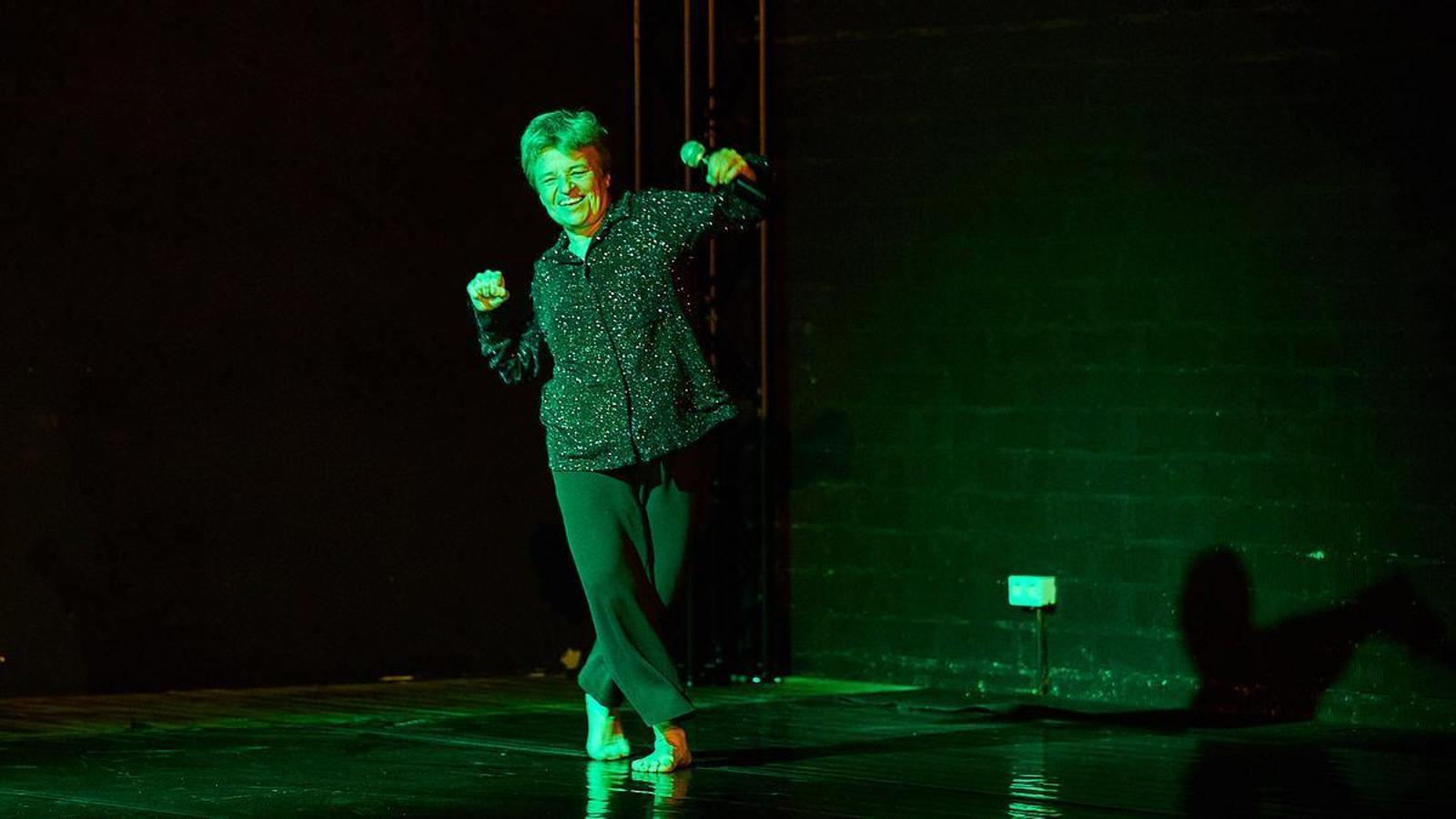Montse Colomé: "The most amazing thing when you get older is the loss of the filter."
Choreographer and dancer


BarcelonaFor three years now, dancer and choreographer Montse Colomé (Barcelona, 1956) has been celebrating. At the end of 2022, she premiered Celebration at the Espai Lliure, a spoken dance that is a shared call to live and grow old together. The show has toured Catalonia and has been recognized with the Serra d'Or Award for the Performing Arts. This Friday it arrives at Les Preses as part of the Ésdansa festival, which until Sunday will also host performances such as Volume 1 of Mucha Muchacha, Pastor by Xavier Gumà and various performances by groups from Mexico, Colombia, Benin, Galicia and Georgia.
The show is called CelebrationWhat are you celebrating?
— When I turned 50, I organized a party at La Caldera de Gràcia with 50 women with whom I had shared life and artistic projects. It was a kind of choreographic encounter; we danced and spent a few hours together. Then I thought that when I turned 65, I would give them a gift, and that's how the idea for the show came about. During the pandemic, I found some writings I had done about the body and dance, and from there I began to create with the idea of celebrating life.
For much of your professional career you were behind the scenes, choreographing shows by Comediants and Carles Santos. But from the Requiem by Pedro Faura you started acting as an interpreter.
— A lot of people saw me there and I started getting small acting jobs. I worked on a monologue by Pau Roca, in He dies of the Sun Picó…With this momentum, I took the plunge and applied for two residencies: one at La Caldera in Les Corts and another with the Teatre Nu team in Sant Martí de Tous. They gave me the opportunity, and I thought everything was going well.
In CelebrationThe public plays a fundamental role. Why?
— What I propose is to dance and value the body, because it's the only thing that belongs to us. It's personal and non-transferable, but we rarely use it. I welcome the audience in a nightclub setting and have them dance a piece I created when I was five years old. When it's time to tell my story, people sit there tired and sweaty. This puts them in a very different situation than arriving, sitting down, and waiting for someone to dance. I've realized it raises a lot of awareness about moving, to the point that when we're done, they always come back and talk to me.
One of the ideas you convey is that the important thing is to dance, without prejudice.
— With the boom In the nineties, those of us who dedicated ourselves to dance were obsessed with raising the technical level of our bodies. We had the need to prove that we danced well. Now, dancing well or dancing badly no longer exists, beyond classical dance, which is still very much in people's memories. I am short and round, but I am not stupid, and I soon saw that Swan Lake It wasn't my goal. Besides, there are many dance-related jobs that aren't considered. It's not just about performing, being a teacher, or a choreographer: you can do dance videography, dance therapy, documentary filmmaking... All of these are career opportunities.
What reflections do you raise on stage about being a woman and growing older?
— I base my work on three verbs: choreograph, assist, and learn. I talk about my craft and work with directors, choreographers, and students, but also about other things, such as the experience of assisting a friend in traffic. And I also talk about how, as we get older, it's essential to remain curious. When it comes to physical appearance, I wonder who invented concepts like vaginal atrophy or mammography machines.
This is the first time you've gone on stage to talk about your story in person. How are you experiencing it?
— The most amazing thing when you get older is the loss of filter. Suddenly, I have nothing to gain and nothing to lose. Sometimes, with certain directors, we don't dare tell them things for fear of losing our jobs, because ours is a very precarious profession. But you have to dare. With age, that daring is crystal clear to me. I show myself, and if anyone doesn't like it, they'll tell me.
To the point that when they gave you the Cross of Sant Jordi you didn't bite your tongue in front of the counselor.
— I took the opportunity to tell him that I wanted to talk to him, and we will have a meeting on September 17th. I have high expectations. I want to explain to him that, starting from doing Celebration In Catalonia, I've realized that the key is to decentralize dance. The Generalitat (Generalitat) and dance companies have long complained about the lack of audiences, but instead of inventing cultural policies that don't quite work, it would be interesting to see what happens in the villages. In Castellfollit de la Roca, a women's association invited me, and now at the end of the year I'll take a course, to get them to dance. It's a bit like the idea that France put into practice with former minister Jack Lang, who dedicated himself to opening choreography centers throughout the country that bring dance closer not only through performances but also through related activities.
